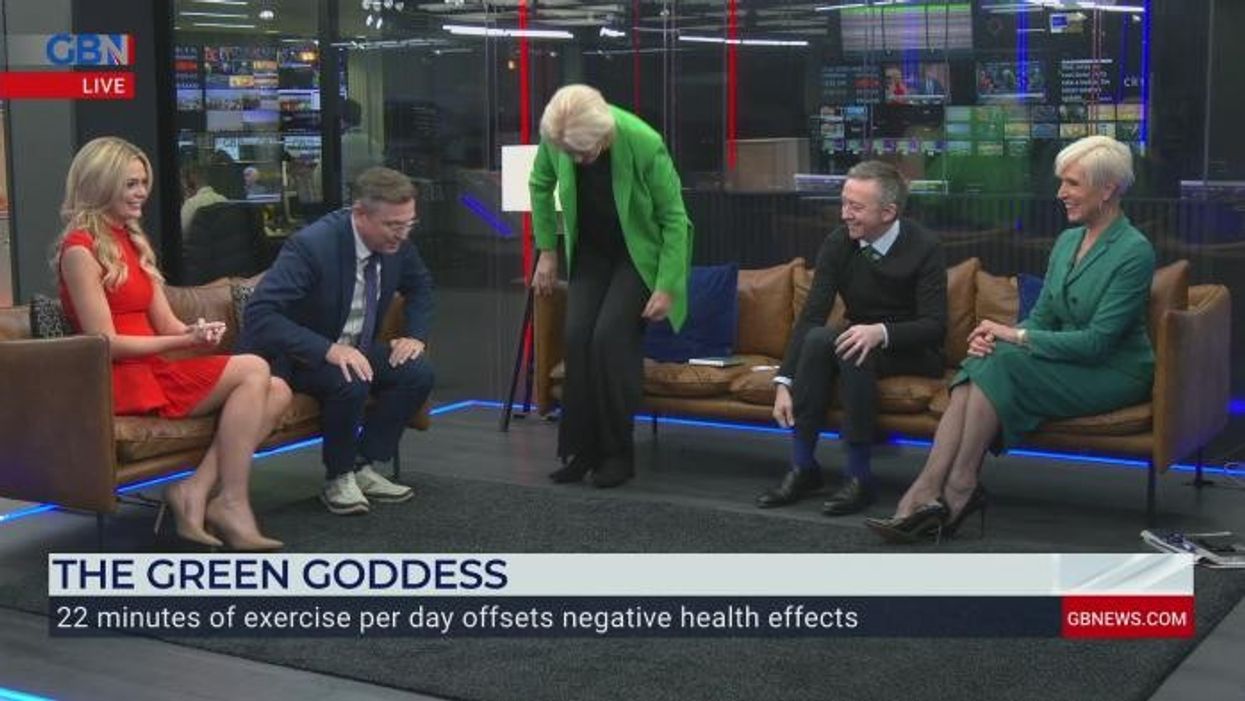How much exercise you should be doing per week to 'lower the risk of early death'

Britons might want to up their exercise in order to increase longevity
Don't Miss
Most Read
Latest
According to new research, doing a specific amount of exercise per week can have an incredible effect on your longevity.
A study found that working out can lead to a lower risk of death from cardiovascular disease. Combining both moderate and vigorous physical activity may be particularly effective.
The study, published in the journal Circulation found that those who exercised about 300 to 599 minutes each week (around five to 10 hours) saw the most benefit.
The research centred around 116,221 adults who self-reported their leisure-time physical activity (exercise that is not done at work), 15 times over 30 years.
Do you have a health story you'd like to share? Contact our team by emailing lifestyle@gbnews.uk.

'Moderate physical activity is defined as walking, weightlifting and lower-intensity exercise'
|GETTY IMAGES
Speaking about the research the American Medical Association (AMA) said: "While the 2018 physical activity guidelines recommend that adults engage in at least 150 to 300 minutes per week of moderate exercise, 75 to 150 minutes each week of vigorous movement, or an equivalent combination of both intensities, it turns out that if adults do more than the recommended amount, it can lower their risk of death."
Experts explained that moderate physical activity is defined as walking, weightlifting and lower-intensity exercise, while vigorous exercise can be running, cycling and swimming.
The AMA said: "The study found that working out two to four times beyond the minimum vigorous physical activity recommendations led to a lower risk of death from cardiovascular disease.
"Those who worked out two to four times above the moderate physical activity recommendations - about 300 to 599 minutes each week - saw the most benefit."
Participants who performed two to four times above the recommended amount of moderate physical activity had a 26 per cent to 31per cent lower all-cause mortality and a 28 per cent to 38 per cent lower risk of cardiovascular disease mortality.
For those who opted for vigorous exercise instead, adults who worked out two to four times more than the recommended amount - about 150 to 299 minutes per week - had 21 per cent to 23 per cent lower risk of all-cause mortality, and a 27 per cent to 33 per cent lower risk of cardiovascular disease mortality.
The results suggested that combining both moderate and vigorous physical activity over a long-term basis could be advantageous and reduce the risk of life-limiting illness.
The study said: "A substantially lower risk of mortality was observed among individuals who had adequate levels of both long-term leisure time moderate and vigorous physical activity.
LATEST DEVELOPMENTS

'Vigorous exercise can be running, cycling and swimming'
|GETTY IMAGES
"Any combination of medium to high levels of vigorous (75 to 300 minutes per week) and moderate physical activity (150 to 600 minutes per week) can provide nearly the maximum mortality reduction." This is around 35 per cent to 42 per cent.
When it comes to long-term, high-intensity endurance exercise, the AMA added that previous studies have shown evidence that these may cause myocardial fibrosis, coronary artery calcification and atrial fibrillation as well as sudden cardiac death. Examples of long-term, high-intensity exercises could be marathons, triathlons and long-distance cycling races. However, more studies need to be done on the physical impact on cardiovascular health.
While some people love to exercise, others find it to be a bit of a chore. In order to maintain an effective leisure-time exercise routine, it could be worth enlisting a friend or family member to hold you accountable.
Finding a combination of exercises you enjoy is also crucial, as you're more likely to stick to something you look forward to doing.
Physiotherapists have found that breaking up your working day with short bursts of yoga to ward off diabetes.











